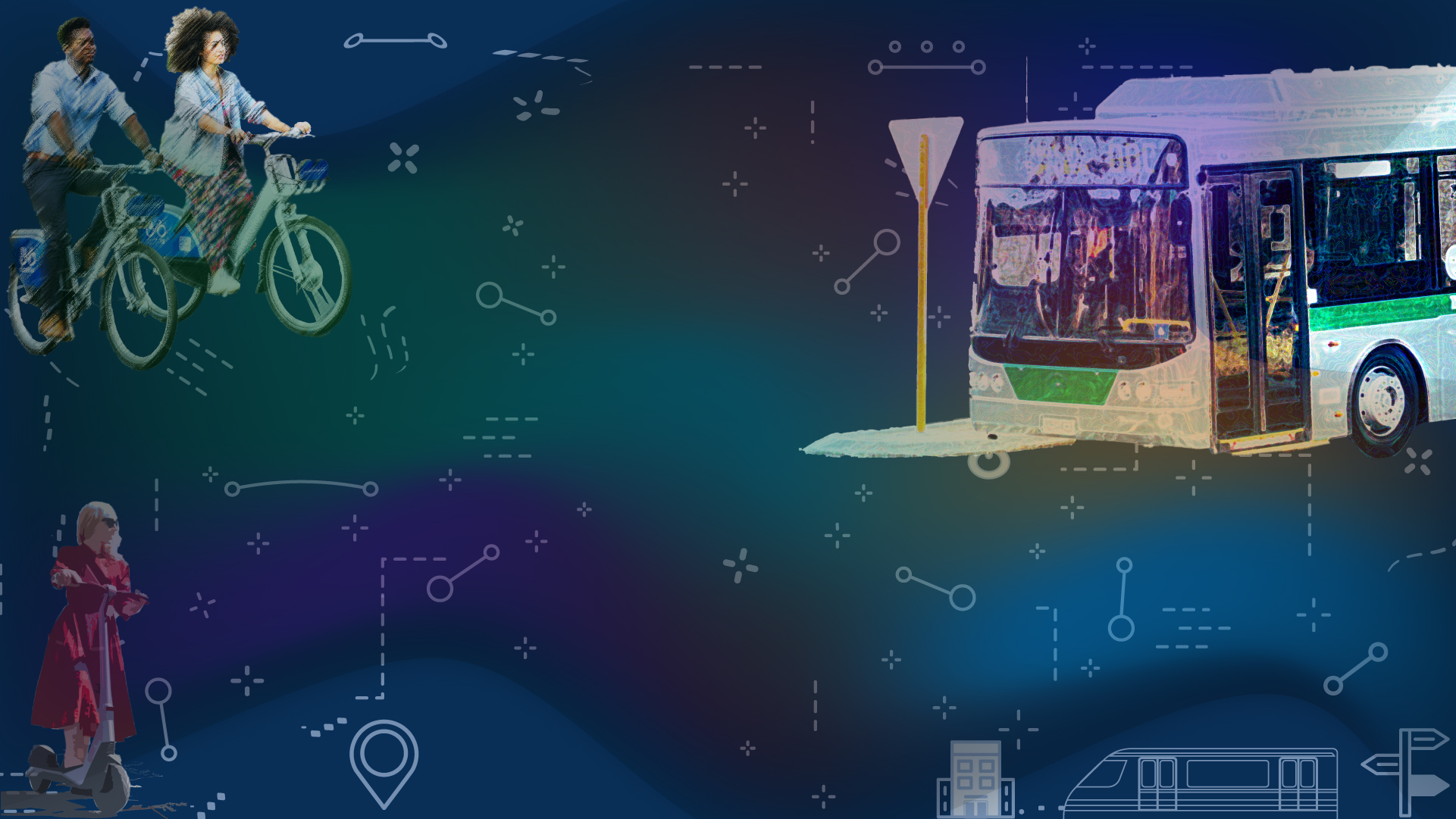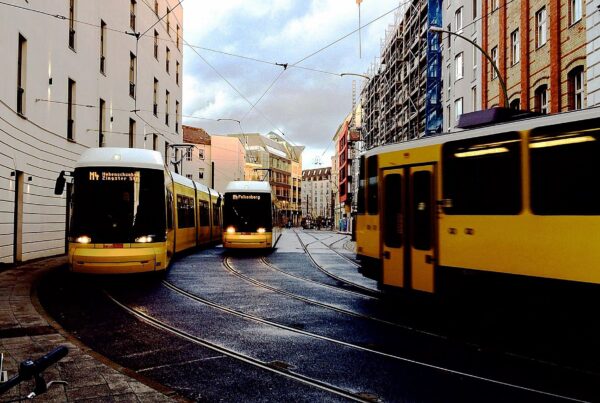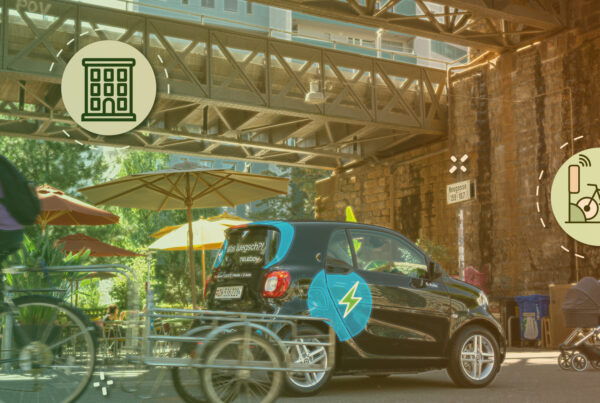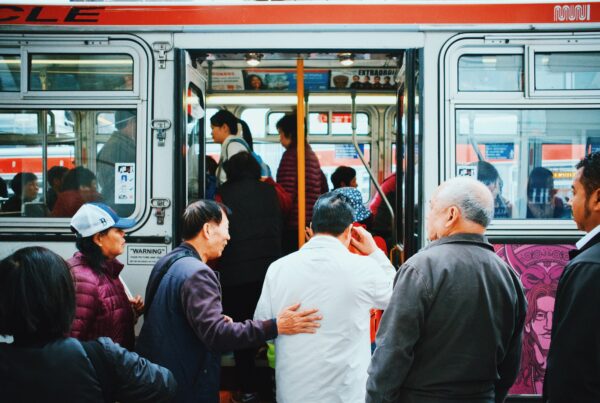The Mobility Hub
Your weekly guide to the latest in shared mobility
SUMC News and Announcements
How can micromobility work best with public transit?
A new SUMC-led report and toolkit seeks to answer this question by showing how shared bikes and scooters interact with public transportation in a variety of environments, and how agencies can most effectively partner with or regulate micromobility to equitably benefit local communities while minimizing negative impacts. Published last week by the Transportation Research Board’s Transit Cooperative Research Program (TCRP), Transit and Micromobility is one of the first extended explorations of what transit agencies in particular need to know about the micromobility explosion.
While much of the guidance to date around micromobility has focused on what city governments can do, this report focuses on the transit agency role in managing shared bikes and scooters, given the different tools and policy levers at their disposal. It includes fresh case studies and best practices for transit agencies working on micromobility, new survey data on who is using it and how, information on transit-connected ridership in a variety of environments, and a practitioner-focused toolkit for agencies considering micromobility projects or collaborations.
Interested in where micromobility innovation happens around the world? With over 100 policies from 26 countries, SUMC’s Micromobility Policy Atlas, part of the MOD Learning Center, maps out shared bike and scooter services as a public resource for equitable and sustainable mobility planning.
In other news, we’ve signed onto the Mobility Data Interoperability Principles, five principles created to develop better interoperability within the mobility industry, as part of a coalition of partners spanning public transit agencies, cities, nonprofits, planning organizations, and state departments of transportation.
Read about the principles here.
Ride high on Streetfilms’s latest video that chats with Jerome Horne, an avid public transit advocate and the Director of Transit Leadership Development at TransitCenter, about how his childhood love of buses, trains, and everything in between grew into a dedication towards expanding transit options for everyone—including a sneak peak into his International Micro Museum of Transit. Watch the interview here.
If you missed the 2021 Summit this past July, Jerome also hosted our Mobility Justice Spotlight series that centered Black and brown experiences around equity and mobility. View the Spotlight recordings here and don’t forget our 2022 Summit is taking place May 17 & 18, in person, in Chicago.
More on the mobility justice front, Equiticity founder and long-time advocate Oboi Reed has launched a new project called The Go Hub for Chicago’s North Lawndale neighborhood that aims to merge the “hardware and software” of mobility infrastructure and community events to reduce violence in the area. Learn about The Go Hub on WTTW’s The Last Word, and don’t miss Equiticity’s upcoming event, the Second Annual Chicago Bike Collective Ride, today at 6PM if you want to support Equiticity in the streets.
November 15, 2 PM ET
Mobility Justice
“Growth has meant emissions, and emissions have meant growth. The climate crisis is the result of that history, as is the wealth of nations,” posits New York Magazine about the urgency for climate reparations from heavily-industrialized Northern countries so the worst of climate degradation faced in the global South isn’t realized and instead moves towards collective efforts in “global green prosperity”.
Check out a map of upcoming Equitable transit-oriented development (ETOD) projects around Chicago that are partially funded by a microgrants from the city, Elevated Chicago, and Enterprise Community Partners and center community-focused spaces and amenities around affordable housing near CTA train stations.
Ridehailing/Carsharing/Carpooling
Taxi drivers in New York weren’t happy with the de Blasio-backed debt relief plan for burdened cab drivers, but a two-week long hunger strike put pressure on the city—with the New York Taxi Workers Alliance calling the new deal a resounding success! Drivers can now expect restructured loans to a much small $200,000 and monthly payments capped to almost half of what was previously contracted.
While hitting the slopes in Colorado isn’t always the trip on transportation planners’ radar, this is now seeing fresh attention from local carpool programs to help people cut down on single-occupancy rides headed towards the Rockies’ Front Range.
Bikesharing & Micromobility
How can bikeshare thrive in Los Angeles? Streetsblog LA lays out four much-needed tactics for rounding out the system for better visibility and connectivity that go beyond LADOT’s recent expansion of Metro Bike Share into Hollywood (which is still a notable win).
Staying on the topic of bikeshare, the Better Bike Share Partnership recaps their Shared Micromobility and Cities for Cycling Roundtable series (co-hosted by NACTO)—which included workshops on scaling up programs to bolster “people-powered wheels” and flexible community engagement for all ages and abilities.
Transit
It’s not a bird, plane, or Superman coming to save the world—it’s public transit. Frequent and reliable public transit is what can help mitigate emissions while creating social equity, and, as The Verge points out, we just need to fund current systems to save it from the death spiral.
In Austria, traveling for an entire day costs less than a medium latte ($3.50) with the new ‘climate ticket’ that covers use of all public transit systems across the country. Can the U.S. get one of these?
Technology
Can tech-promises of “our driverless future” really solve the issues we face today? We agree with Fast Company suggesting prioritizing the modernization of today’s public transit and mobility solutions instead to avoid car dependency as a given.
Meanwhile, Amazon’s robotaxi company Zoox is getting reorganized and reviewed as it gears up to offer commercial ride services in Las Vegas.
Sustainability
Cars harm the planet besides just speeding down our roads—gas-guzzlers exported worldwide also contribute to air pollution and waste through the (unregulated) practice known as “global dumping”. Wealthy nations mostly responsible for this need to overhaul recycling standards and cut used vehicle exports entirely so cars aren’t adding even more CO2 into the air.
Finally onto COP26 news: it’s t-minus five days until the climate conference’s transport day, but so far, there’s no mention of biking, walking, or trains. How are we going to help the planet without clean transportation options at the forefront of sustainability? We’ll be tuned in on November 10 to see leaders’ answers.
Project Funding Opportunities
RFP: Regional Transportation Demand Management (TDM) Plan
Grand Valley Metropolitan Council
Grand Rapids, MI
Deadline: November 30
RFP: Paratransit Services
Lehigh and Northampton Transportation Authority
Lehigh and Northampton Counties
Deadline: December 3
RFP: Pace ADA Rideshare Pilot
Pace (Regional Transportation Authority)
Chicago, IL
Deadline: December 13
RFP: Yonkers Shared Active Transportation (YSATN) Bike Share System
City of Yonkers
Yonkers, NY
Deadline: May 10, 2025




